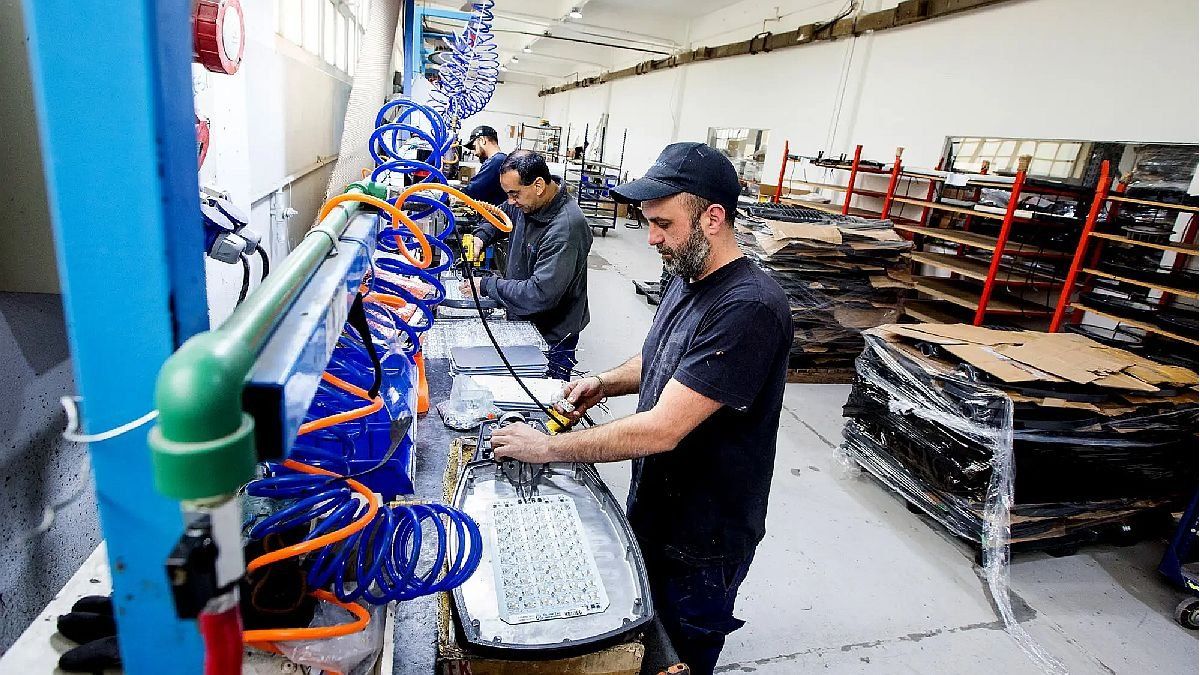Donald Trump It is again in the center of the world political and economic scenario. His influence, together with the role of Scott Besent —The financier indicated as his future economic architect – and the conditions imposed by the International Monetary FundThey are pieces that can define the course of the global economy in the coming years. In Argentina, that international board is followed with attention: external debt, exchange rate, international interest rates and negotiations with the IMF mark limits and condition the decisions of any government.
But in the face of such names and organisms, the inevitable question arises: where are SMEs in all this debate?
Small and medium enterprises are not a minor actor. They represent more than 80% of the country’s white work and constitute, in practice, the true productive and cultural engine of Argentina. However, they seem invisible in the discussion of the great economic policy. While talking about debt agreements, international interest rates and tax equilibria, in the neighborhoods and in the industrial parks, SMEs survive in extreme conditions.
The situation is alarming. According to recent data, SMEs work only 60% of their installed capacity. Factories with outsides, workshops with fewer shifts, businesses that sell well below what they could. The impact is measured in employment, loss of family income and a brake on social mobility. Because, we must not forget it, SMEs are the gateway to the world of work for thousands of Argentines: the first job, the learning of the trade, the construction of a career.
In recent years, more than 16,000 SMEs closed in Argentina. We are not talking about cold numbers, but truncated projects, of family stories that were on the way, of communities that are weakened. They close businesses, workshops, factories that were part of the social framework. And the most serious thing is that the trend does not seem to have been reversed: SMEs are still waiting for active policies, accompaniment, financing, reasonable credit. They are still waiting for someone to put them in the center of the discussion.
The situation is reflected in specific, close and painful cases. A few weeks ago I had to talk with the owner of an SMEs of the February 3 party, in the Buenos Aires Conurbano. A company with more than 120 employees, which knew how to export to different markets and was a pride for its neighborhood. Its owner told me: “I don’t know how I get to the end of the year.” In recent months he had to fire 50 workers, and he is juggling to hold those who remain. Sales collapsed, dollar costs do not stop rising, financing is inaccessible and uncertainty paralyzes it. That businessman, who always opted to grow, today only thinks about surviving. That is the reality that does not appear in the headlines of the macroeconomy, but that defines the lives of hundreds of thousands of families.
Meanwhile, the contrast is brutal. It is discussed in Trump newspapers, about Besent, about the IMF, on international macroeconomy. But the reality of Argentina is defined elsewhere: in an SME that cannot access financing, because interest rates are impossible levels, are through clouds, which makes it unfeasible to take a loan to produce. Reality is seen in a trade that sees consumption falling, because salaries do not reach; In a family business that decides to turn off the machines because energy, taxes and uncertainty make it unfeasible to continue producing.
SMEs are much more than a number in GDP. They represent the culture of work. They represent the idea that effort and production are the way to get ahead. They are the closest face of the real economy: the entrepreneur who knows his employees by name, the neighbor who generates employment in his neighborhood, the family business that is sustained with sacrifice.
The problem is that today That culture is at risk. Public discourse speaks of fiscal equilibriums, of surplus, external debt, of international scenarios. But little and nothing is heard about how the sector that generates most of the formal employment is going to be taken care of. That absence is, perhaps, the most dangerous of all. Without SMEs there is no job; without employment there is no consumption; And without consumption there is no economy that works, no matter how much macro accounts close.
The country needs SMEs to cease to be the great forgotten policy and become protagonists. You need to think about a specific plan so that they can produce more, hire more, export more, innovate more.
Trump, Besent and the IMF will mark the international agenda, yes. But for Argentina the real question is another: what place are we going to give our SMEs in the country project? If we continue to discuss only the world of great finances and forget the real economy, we run the risk of losing not only companies, but also the social fabric that supports millions of families.
SMEs are the heart of Argentina. And when the heart does not receive oxygen, the whole body begins to fail.
SME industrial
Source: Ambito
David William is a talented author who has made a name for himself in the world of writing. He is a professional author who writes on a wide range of topics, from general interest to opinion news. David is currently working as a writer at 24 hours worlds where he brings his unique perspective and in-depth research to his articles, making them both informative and engaging.




